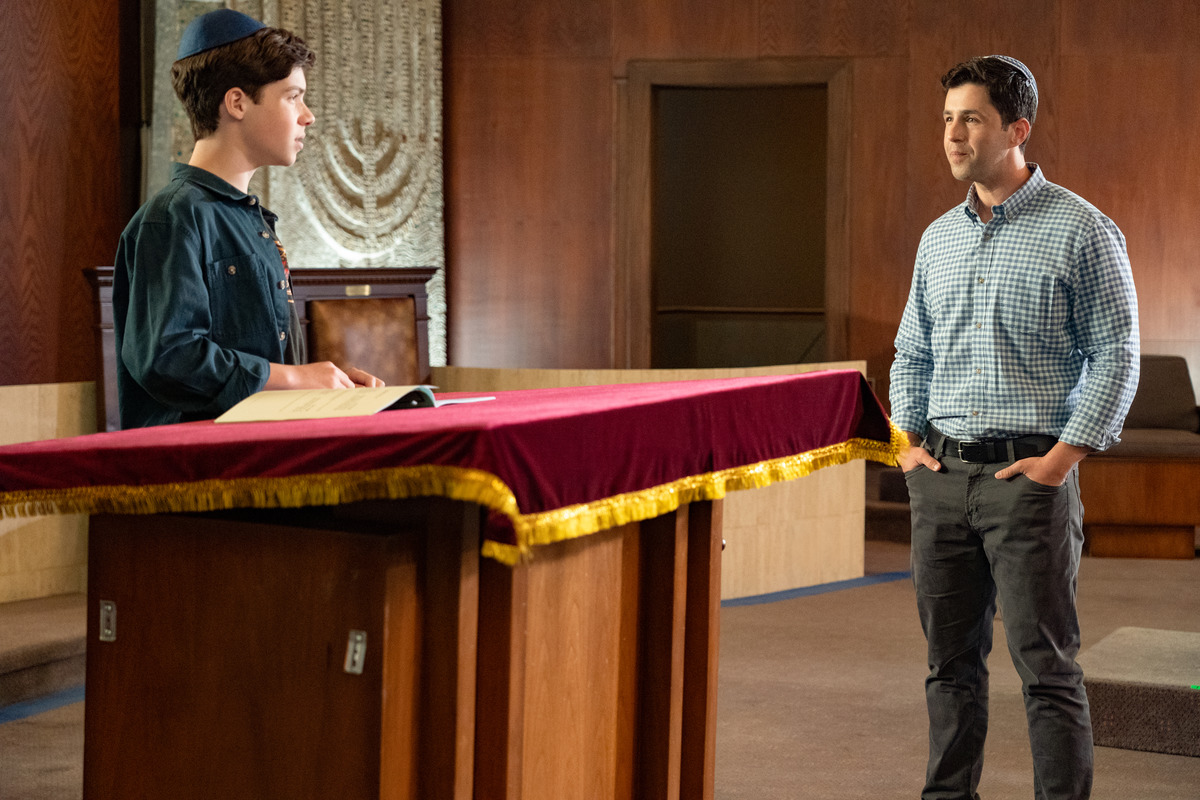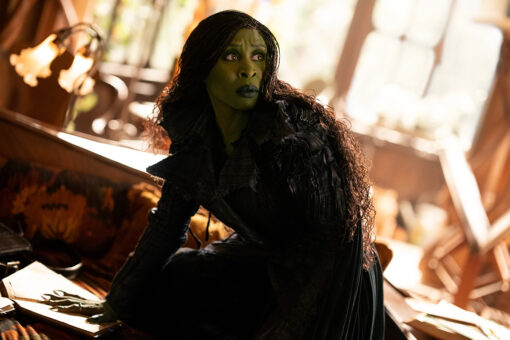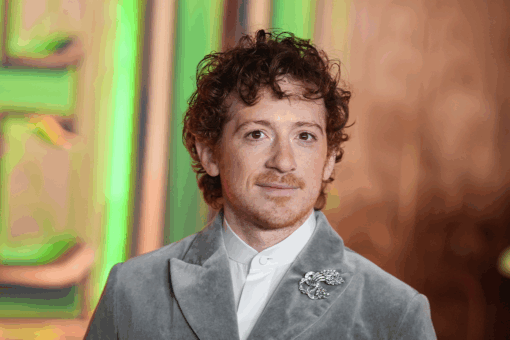The Netflix original rendition of the 2009 bar mitzvah Broadway hit “13: The Musical” has arrived, and with it, the hottest young rabbi in New York City: Rabbi Shapiro, played by the ever-charming and quite Jewish Josh Peck. He’s witty, he’s pithy, his Hebrew pronunciation is pretty decent and he knows exactly how to get on titular bar mitzvah boy Evan Goldman’s level.
When the movie begins, Evan’s (Eli Golden) parents (played by Debra Messing and Peter Hermann) are getting divorced, and his mom is moving him from New York to her hometown in middle-of-nowhere Indiana just months before Evan’s bar mitzvah. Like any 12-year-old would, Evan worries he won’t make any new friends in time for his big day. Middle school shenanigans featuring new friends Patrice (Gabriella Uhl), Brett (JD McCrary) and Kendra (Lindsey Blackwell) ensue.
With Evan struggling to navigate this new world at home and in school, what does Rabbi Shapiro do? Rather than let Evan forgo his coming-of-age ceremony and miss the opportunity to declare his commitment to Judaism and its mitzvot, possibly disconnecting him from Judaism forever, this ingenious rabbi offers to continue tutoring Evan remotely — and will even fly into Indiana to officiate the ceremony when the time comes. What an absolute legend.
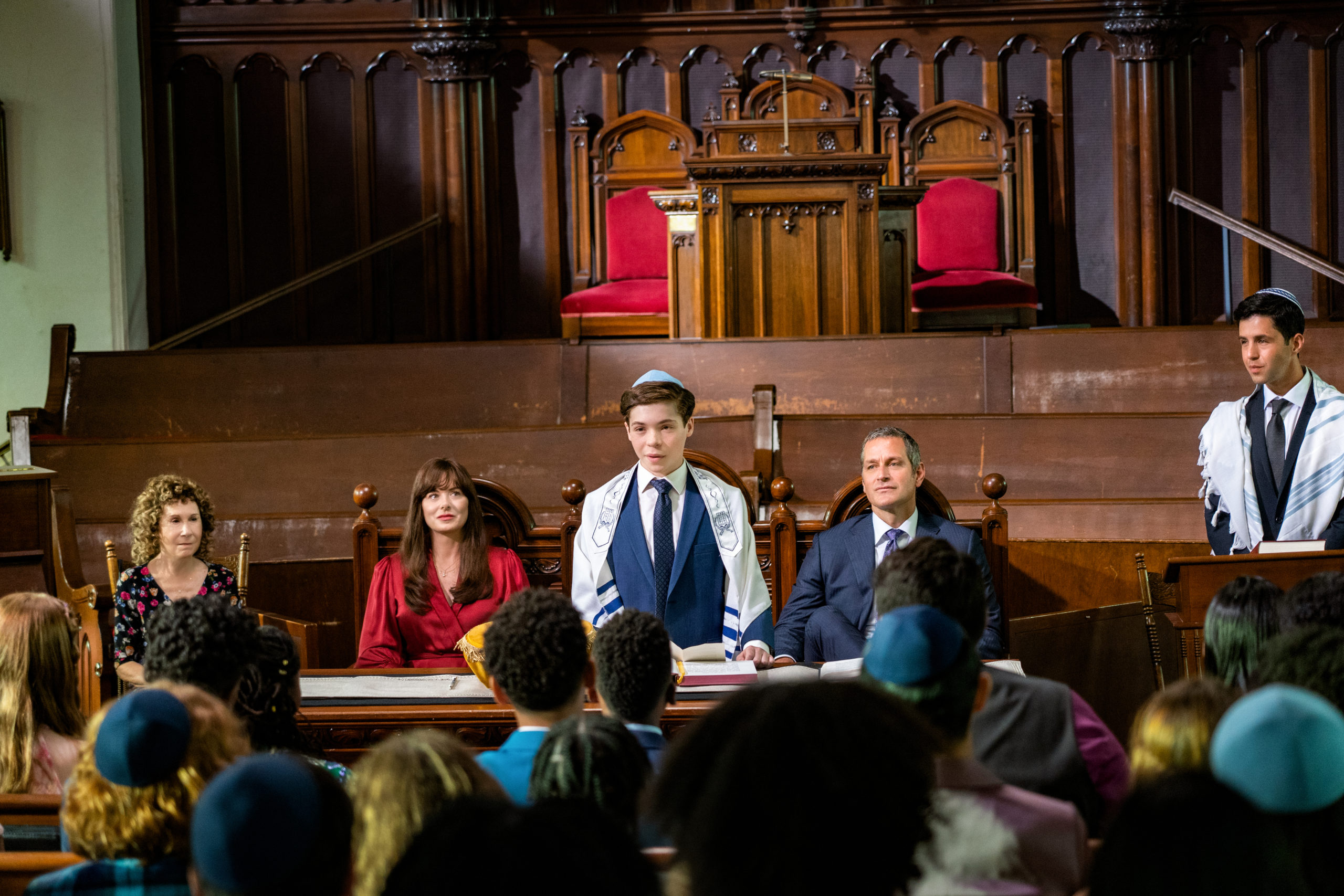
For all the faults “13: The Musical” possesses, and there are many, Rabbi Shapiro isn’t one of them. Evan is a mensch of a kid: He’s welcoming of strangers, he’s always ready to atone for things he’s done wrong (and even for things other people did wrong and blame him for) and he spends most of the movie putting others before himself, even if in very middle school ways. You can tell from Evan and Rabbi Shapiro’s few, brief conversations throughout the movie that Shapiro probably emphasizes righteousness as the foremost Jewish value a budding Jewish adult can embody.
Shapiro’s not perfect. No man is. He trades being a little too cool and down to earth for never really stopping to explain to Evan why becoming bar mitzvah is actually important — or, at least, how to explain its importance to others. Throughout the movie, Evan consistently describes the ritual to his new non-Jewish friends as merely a big party, even as he tries to emphasize its magnitude in a young Jew’s life. Evan does discuss doing a mitzvah project, but seemingly explains it as a transaction he must accomplish, rather than an inherent responsibility to do good simply for the sake of it.
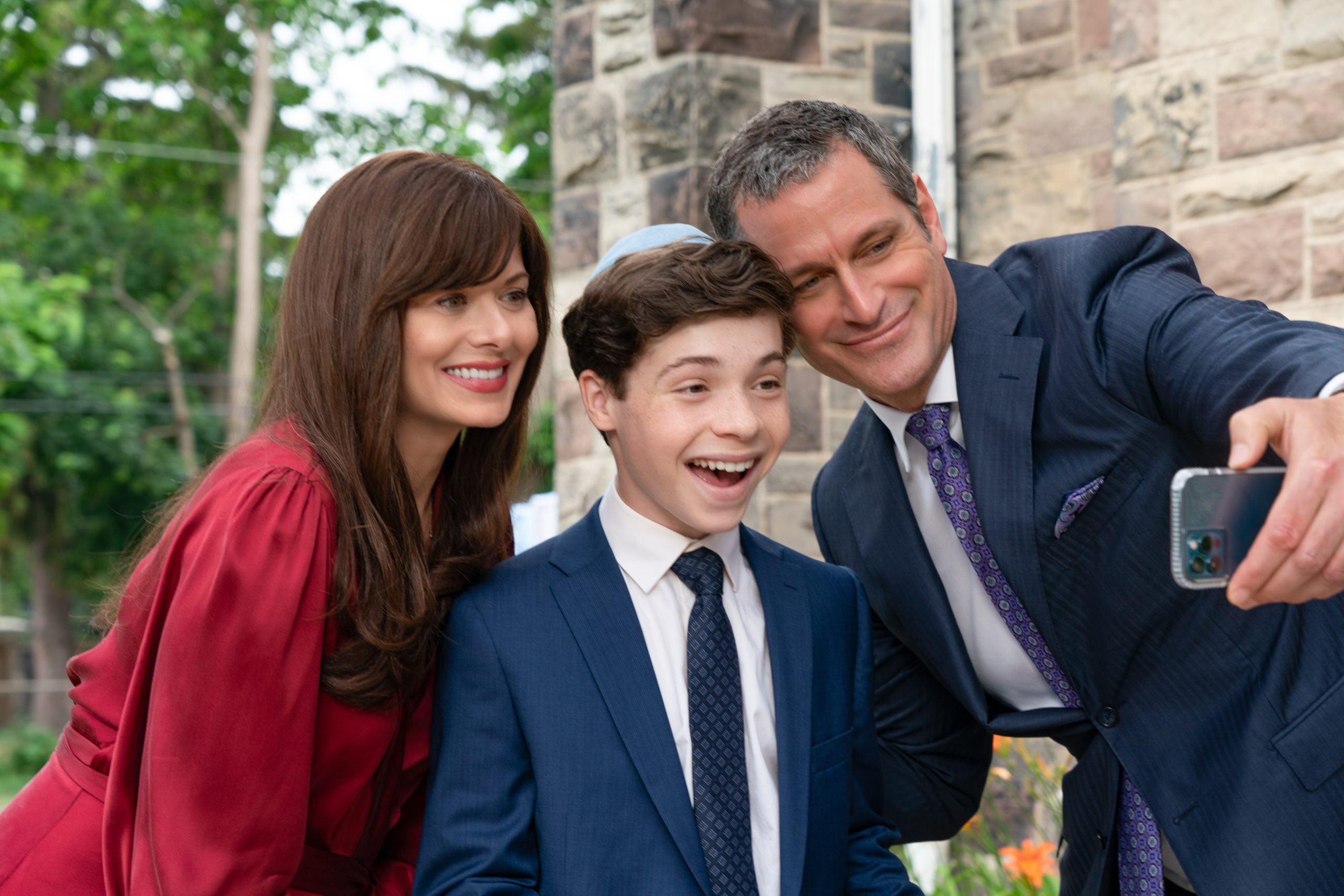
I think he knows in his kishkes what becoming bar mitzvah is really all about — again, the kid is an absolute mensch — but it sure would be nice if he had learned to articulate it along the way. Alas, I suppose none of the middle schoolers I teach in religious school could articulate it any better than Evan could.
What Evan can do, though, is chant his haftarah like a champ. And do you know where he learned that skill? Rabbi Shapiro, of course. Any teacher who can get a kid struggling with his parents’ divorce, a huge move across the country, a ton of drama at school and among friends and a short attention span for Hebrew practice to master their Hebrew reading and cantillation like that deserves to be in some kind of hall of fame.
I think what makes Shapiro such an effective teacher is his ability to meet Evan where he is. While he pokes good fun at Evan repeatedly, Rabbi Shapiro is also the kind of rabbi who doesn’t just give Evan the answers or tell him what he wants to hear. He leaves it up to Evan whether he’ll practice or not; there’s no fear of repercussions imposed on him, no shaming. He just guides the kid with a gentle hand towards good decision-making with short bursts of wisdom and a good dose of humor.
I know, love and work with a lot of rabbis, and Josh Peck’s Rabbi Shapiro embodies some of the finest qualities in them all — kind, fair, encouraging, personal, honest and relatable. He can raise kids with menschkeit, tutor Hebrew and build genuine connections with the absolute best of them. He even gives a pretty good benediction. He could be my rabbi any day.
